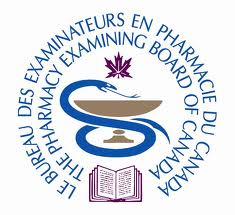to be hospital pharmacist 7
What makes a team ?
There is a plethora of literature about teams and what makes a good team in
management books; we do not deal with this here because it is outside of the
scope of this book. We have intentionally avoided trying to identify a list of
qualities that make a good team because of the ready availability in existing
literature.
It is important at this stage to identify the difference between a group
and a team. A group is a collection of individuals who are gathered together
and associate themselves with each other – this is what a pre-reg group will be
like at the start of the year. A group in itself does not necessarily constitute a
team. Teams normally have members with complementary skills, generating
synergy through a coordinated effort; this allows each member to maximise
his or her strengths and minimise his or her weaknesses. A team is a group of
people with a common purpose.
From our point of view, as pre-reg tutors and managers, a good pre-reg
team is a bonus because there could be a better collective group effort. If
pre-regs do not form a team this does not affect how we do our jobs and
support pre-regs; we continue to support pre-regs individually regardless, but
this may be more difficult.
An analogy that we often use is trying to relate the pre-reg team to a
sports team such as football and netball. Using the football analogy, a
good team is one in which the team members have different sets of skill
which they combine to maximise the team effort. You do not find more
than one goalkeeper in a football team (assuming no substitutes of
course!).
Problems may occur if there are more than two strikers on the
team and they do not complement each other; in these instances conflict
may arise when they both want the limelight and are not prepared to put
in the effort required when working in a team, such as defending and
chasing back.
The same can be said about the team in netball which has only seven
players on each team. The ball cannot be passed from the goal defence to the
goal shooter unless it has passed through at least one team member. As
netball rules do not permit players to take more than one step in possession
of the ball, the only way to move the ball towards the goal is to throw the ball
to a team mate. The ball cannot be held by a player for more than 3 seconds at
any time, which ensures that everyone on the team is regularly involved in
play. If one player does not play her part in the team the whole team will be
unsuccessful because the ball will not get from one end of the court to the
other.
Although the sporting analogy will not suit all of you, when it comes to
trying to describe the advantages of a good team many will relate to this
straight away.
In larger pre-reg teams the team members all have slightly different
qualities; in those teams that work well, pre-regs have maximised the benefit
of working in the team by identifying each other’s strengths and weaknesses.
An example is where those of you who are good at calculations may be called
upon to help the weaker ones to do calculations, and in return you may
benefit from sharing their knowledge and experience. There is a similar
situation in rotational teams but it may take longer to establish the roles of
the individual players and your own role within that team. You don’t want to
be the one who is always offside or always dropping the ball at important
moments!
While considering what makes a good team, it is equally important to
think about either what makes a bad team or how a good team becomes a bad
one. A bad team is one in which the members break into smaller groups; this
often happens in teams with more than five or six members, and the two or
more groups completely divorce themselves from each other. Each small
group has its own identity and direction and they often socialise together
both in and out of work.
There are occasions when the smaller groups are so
dissimilar that conflict can develop. This is seen particularly when the pre-reg
year becomes stressful, such as around recruitment time and in the build-up
to the registration exam. A good team can easily break down into smaller
groups and, although this is normal, the team should still be able to function
as a whole when there is a common goal.
We sometimes see individuals excluded from the main team, for whatever
reason, and they have to ‘go it alone’ during the year. For some of you
this may be OK but for others this can be distressing and add to the stress
already there, particularly during group activities.



Comments